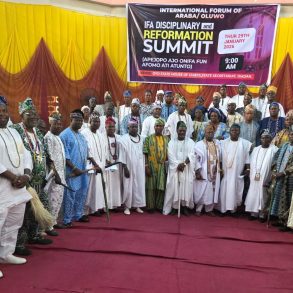October 21, 2024
By Samuel Ogunsona
The 16th Conference of the Parties under the Convention on Biological Diversity (CBD COP 16) has officially begun in Cali, Colombia, bringing together approximately 23,000 delegates from nearly every country worldwide.
This two-week conference marks a pivotal moment for biodiversity, following the historic adoption of the Kunming-Montreal Global Biodiversity Framework (KMGBF) at COP 15 in 2022.
Colombian President Gustavo Petro will address the ceremonial opening alongside United Nations Secretary-General António Guterres and Colombia’s Environment Minister, Susana Muhamad, who will also serve as the incoming President of COP 16.
Other notable attendees include heads of Government from Brazil, Ecuador, Haiti, Guinea-Bissau, Guatemala, Mozambique, and Surinam, as well as vice-presidents from Bolivia, Gabon, Kenya, Cuba, and Spain.
The conference aims to make significant progress in implementing the KMGBF’s ambitious goals and 23 targets for 2030.
Key objectives include protecting 30% of the world’s land and seas, reducing harmful subsidies, and restoring degraded ecosystems.
Delegates will negotiate the operationalization of the multilateral mechanism for the fair and equitable sharing of benefits from Digital Sequence Information on genetic resources.
The UN Secretary-General, Antonio Guterres, said, “For humanity to thrive, nature must flourish. Destroying nature inflames conflict, hunger and disease; fuels poverty, inequality, and the climate crisis; and damages sustainable development, green jobs, cultural heritage, and GDP. The Global Biodiversity Framework promises to reset relations with Earth and its ecosystems. But we are not on track. Your task at this COP is to convert words into action.”
Speaking, Colombia Environment Minister Susana Muhamad, incoming COP President also stated that “Colombia as host country of the COP16 hopes that this will be the COP of implementation, in which concrete actions can be articulated for the fulfillment of the Kunming Montreal Global Framework, and that the conservation and care of biodiversity can be positioned at the same level as decarbonization and energy transition. Furthermore, for us, it is essential that this is a platform for indigenous peoples, local communities and all sectors of society to feel represented and heard in their crucial role in making Peace with Nature.”
Additionally, COP 16 will focus on recognizing the contributions of indigenous peoples and local communities in biodiversity conservation and addressing the biodiversity-health nexus.
The conference will also discuss strategies for integrating biodiversity conservation and climate change mitigation and adaptation.
Other critical issues on the agenda include managing invasive alien species, regulating living modified organisms, and safeguarding marine and coastal biodiversity.
The conference will conclude on November 1, and the world watches with anticipation to see if collective action will translate into meaningful change.






